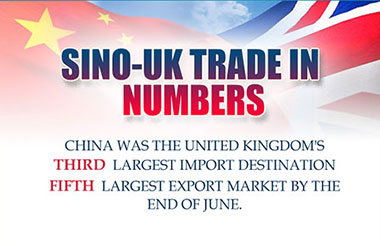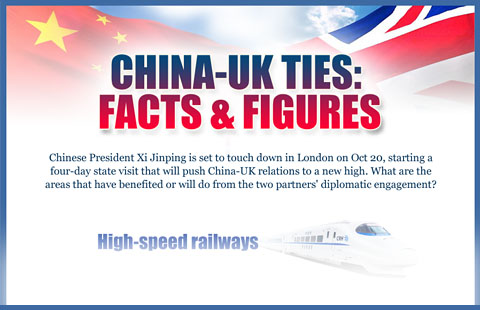Chinese investment important drive for Peru's economy
(Xinhua) Updated: 2015-10-22 10:09LIMA - Chinese investment benefits Peru as the country seeks to accelerate its development, particularly through building major infrastructure projects, a leading Peruvian expert in economics told Xinhua.
"For some years, China has sought to go outside economically. It seeks to penetrate other markets as a way of competing with other countries," said Roberto Urrunaga, dean of Economics at the University of the Pacific.
Urrunaga praised China's bid to help Peru build a trans-oceanic railway linking Brazil's Atlantic coast with Peru on the Pacific. During Chinese Premier Li Keqiang's visit to Peru in May, the three governments signed a memorandum of understanding to carry out a feasibility study on the project.
This kind of investment in infrastructure projects is what this region has been lacking, according to Economic Commission for Latin America and the Caribbean (ECLAC).
Alicia Barcena, executive secretary of the ECLAC, said earlier this month in Lima that promoting public investment is crucial for sustaining economic growth in the region.
While Peru welcomes such investment, Urrunaga said any such deals must benefit all parties. "China wants to build the trans-oceanic railway, not only because it would benefit Brazil and Peru, but to move the local products as fast as possible to China. This is a perfectly valid motive."
"China has seen that there is a lot of space to invest in Peru. The country's development and infrastructure have been moving slowly, allowing Chinese companies to take an interest in the expansion of Lines 3 and 4 of the Lima metro, for example," Urrunaga said.
The Brazilian and Peruvian governments should ensure open tendering rounds for the construction and operation of this mammoth project to draw bids from as many companies as possible to maximize the benefits to multiple stakeholders, he added.
Commenting on the creation of the Asian Infrastructure Investment Bank (AIIB) by China, Urrunaga said: "There is increased competition (among Chinese banks and the World Bank in Latin America), which is welcome. The AIIB is a new player for Peru to seek development funds from. A few years ago, the World Bank was almost the only choice. The AIIB is welcome to compete and help to improve cooperation and development in Peru."
At present, China is Peru's largest trading partner, largest export market and largest source of imports. Bilateral trade volume reached $14.32 billion in 2014, and China's total investment in Peru reached $14.24 billion by the end of 2014, according to China's Ministry of Commerce.
- China's high-speed railway technology reaches high level
- Equities dip as volatility erases gains
- Tourists look to western China, lured by rich heritage and mystery
- Survey captures small and medium-sized companies' concerns
- Intel may invest $5.5b to upgrade Dalian factory
- China accelerates removal of high-emission vehicles
- China's high end manufacturing on the rise
- Apple to invest, create more jobs in China: Tim Cook














